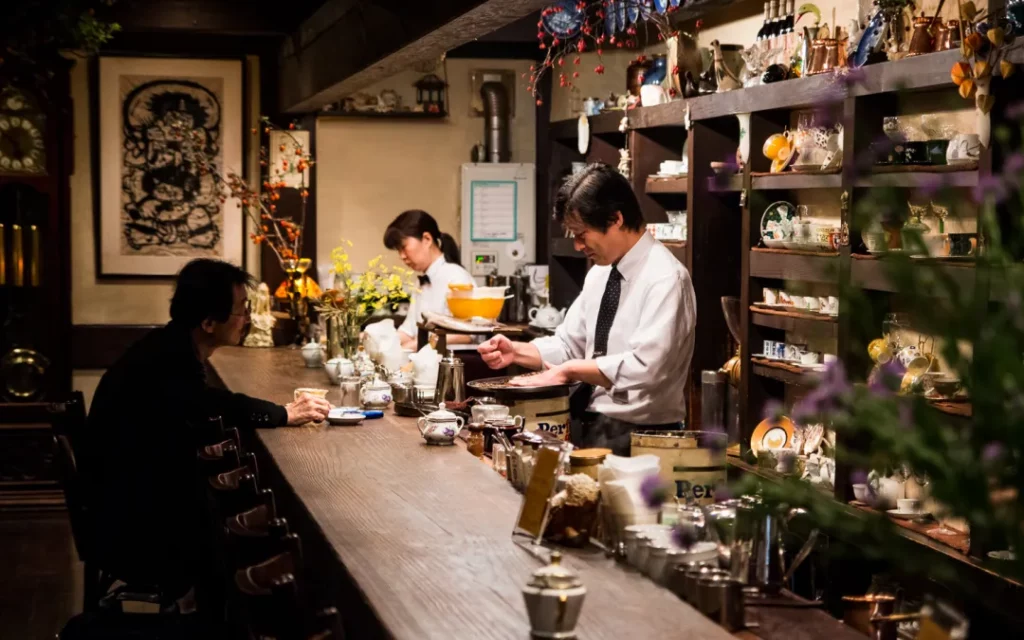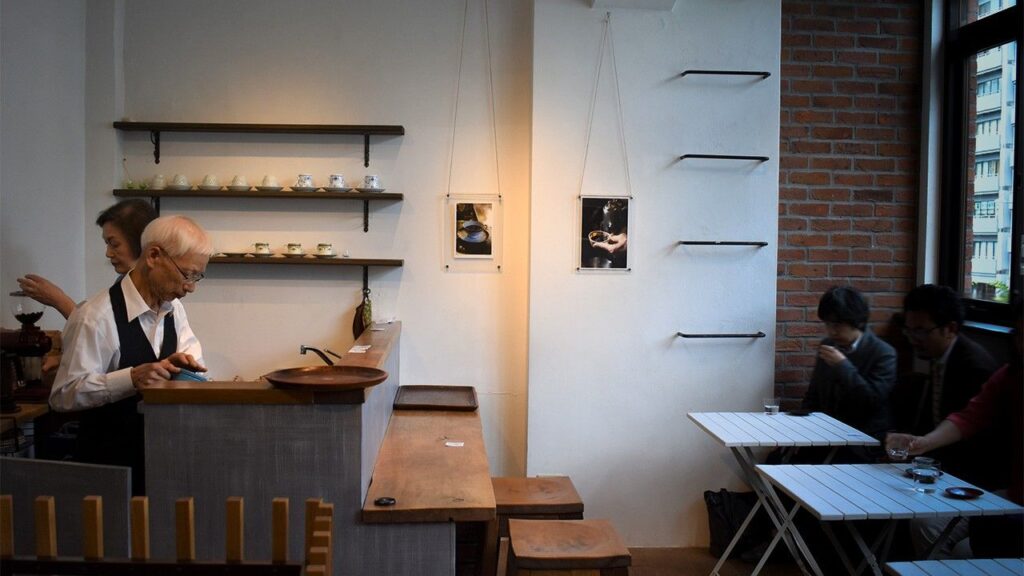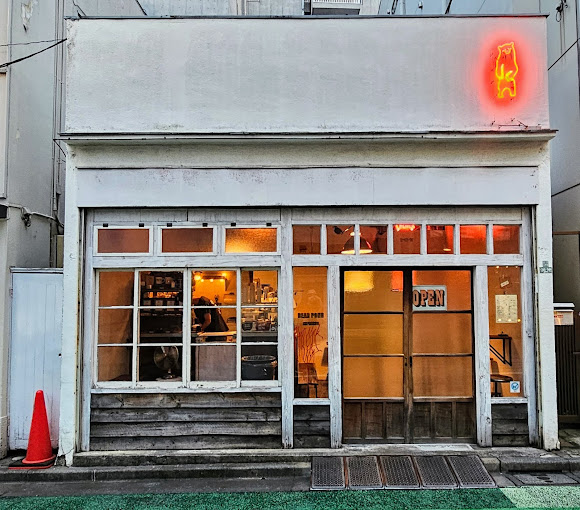The coffee culture in Tokyo is a rich tapestry woven from traditional roots and contemporary innovations, making it one of the world’s premier destinations for coffee enthusiasts. Tokyo’s coffee scene offers an unparalleled variety, from century-old kissaten to modern specialty cafes that reinterpret every genre of coffee. Despite the vast number of notable shops and roasteries, exploring some highlights of Tokyo’s sprawling coffee culture is entirely feasible.

The Time Capsules: Traditional Kissaten
One of the most famous traditional Japanese coffee shops (kissaten) that every coffee tourist seems to know is Ginza’s Café de l’Ambre. Since its inception in 1948, Ichiro Sekiguchi has owned and operated this coffee-only establishment, creating a timeless atmosphere with its smoke-filled, dimly lit, and dark-wood-paneled interiors. Café de l’Ambre defies modern coffee norms, with its in-house roasted coffee often aged for years or even decades and brewed using a “nel drip” method, akin to a pour-over with a cloth filter. Despite these unconventional methods, each cup achieves a masterful balance, compelling even the most discerning coffee aficionados to appreciate its unique flavor. The menu, a double-sided page sorted by preparation, quality, origin, and age, allows for extensive sampling due to the small serving sizes. Notable offerings include a smooth two-decade-old Mocha and the sweet Blanc et Noir, served over ice. For those who can tolerate caffeine and cigarette smoke, a seat at the counter is highly recommended.
In addition to Café de l’Ambre, other notable kissaten include Cafe Bach and Chatei Hatou. These establishments have garnered the admiration of James Freeman, founder of Blue Bottle Coffee, for their meticulous approach to coffee culture and equipment. Each offers an extensive selection of in-house roasted beans, catering more to modern coffee tastes compared to Café de l’Ambre’s roasts. These kissaten also serve traditional desserts like sponge cake, creating a nostalgic and comforting experience. Despite the decline in the number of kissaten from a peak of 130,000 in the 1960s to around 80,000, new traditional cafes continue to emerge, such as Coffee Tram, founded by a former employee of the iconic Daibo Coffee.

Distinctly Tokyo Coffee: The New Wave
Bear Pond Espresso is arguably the most renowned of Tokyo’s new wave coffee shops, famous for its rock ‘n’ roll style and the dense, chocolatey espresso crafted by owner Katsuyuki Tanaka. The shop’s signature drink, Angel Stain, an uncut espresso, is now limited to just 10 servings a day, making it a coveted experience that requires early arrival. However, The Dirty, made with the same espresso and cold milk, offers a satisfying alternative. Despite its somewhat intimidating vibe, Bear Pond Espresso is a must-visit for coffee enthusiasts.
Omotesando Koffee, which earned widespread acclaim until its closure in 2015, has been succeeded by Koffee Mameya in the same location. More of a bean purveyor than a full-fledged cafe, Koffee Mameya offers a wide selection of whole-bean coffees from both Japanese and international roasteries. For a contrasting experience, Arise Coffee Roasters combines skateboard and death metal aesthetics with an impressive range of in-house roasted coffees.

Modern Innovations: Fancy Yet Unpretentious
Switch Coffee, located in a quiet residential area, epitomises modern coffee at its finest with its clean roasts and precise brews. The minimalist setup feels more like a workshop than a traditional cafe, emphasising the quality and taste of the coffee. Similarly, Glitch Coffee Roasters offers a contemporary coffee experience with an emphasis on immaculate brews.
About Life Coffee, an offshoot of Onibus Coffee, is a quaint spot offering espresso drinks from a variety of roasters, prepared with a relaxed yet meticulous approach. The Roastery by Nozy Coffee in Harajuku focuses on single-origin coffees and features a spacious, American-style setup with both indoor and outdoor seating. Its central station for espresso drinks and a separate pour-over counter add to its appeal.
For those who might find Bear Pond’s intense atmosphere overwhelming, Dear All provides a more relaxed environment with solid coffee and delightful buttered toast. Fuglen, styled as a mid-century Norwegian living room, offers a similarly restorative experience when it’s not crowded.
Tokyo’s coffee scene is a dynamic blend of tradition and modernity, offering a vast array of experiences for coffee lovers. Whether you are drawn to the nostalgic charm of kissaten or the sleek precision of contemporary cafes, Tokyo has something to satisfy every coffee palate. Exploring the city’s diverse coffee offerings reveals not just the evolution of coffee culture but also the dedication and passion that go into every cup.

